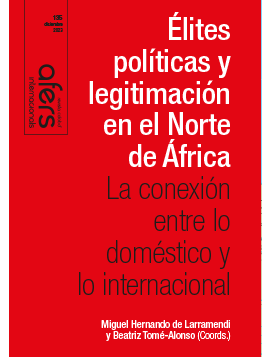Managing division: the EU and the conflicts in the Middle East and North Africa
Keywords:
foreign policy, European Union, Maghreb, Arab-Israeli conflict, Libya, Western SaharaAbstract
Revista CIDOB d’Afers Internacionals, nº 135
Quadrimestral (October-December 2023)
ISSN:1133-6595 | E-ISSN:2013-035X
DOI: doi.org/10.24241/rcai.2023.135.3.193
This paper examines the European Union (EU) response to three conflicts in the Middle East and North Africa region and shines a spotlight on the degree of division among its member states and on the management of these divisions. It concludes that the EU’s desire to be seen as an international actor varies according to the confrontation; it is stronger in the Arab-Israeli conflict, but weaker in the Sahara. Domestic protest and politicisation in the EU affect the fragmentation of positions and the frequency of obstructionist stances. The EU manages the divisions differently in each conflict, with strategies that vary according to the level of ambition or the desire to ensure the sides note the existence of a European position. The paper highlights the growing interaction between the different regional flashpoints and makes the case for a systemic and multilevel approach.
>> The full text articles of this issue are available only in Spanish language













